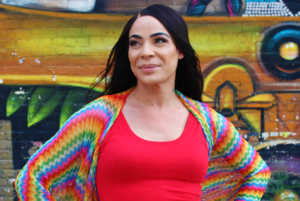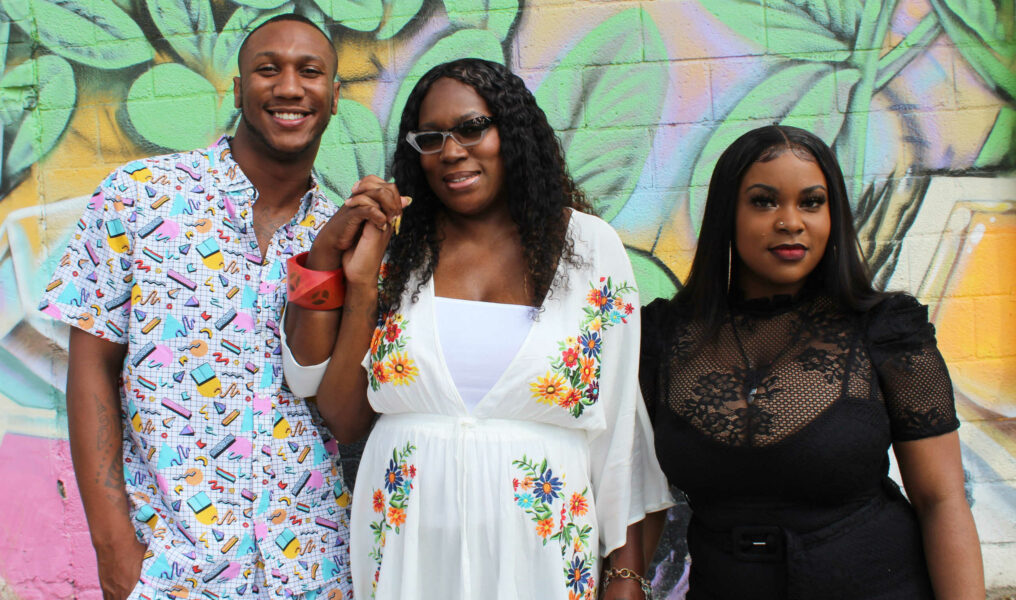Every year, Hotter Than July includes activities and spaces for families. Shontese Hill, an out-and-proud lesbian of color, exposed her biological children, Ka'Juan and Missy, to the LGBTQ community at early ages.
"I brought my daughter, Missy, to the [Hotter Than July] picnic somewhere around the third Pride," Hill said. "My extended family always came to the picnic. They were always open, warm and had a phenomenal time."
Hill, no stranger to community work in the LGBTQ community, began volunteering with a group called Brothers & Sisters in the early '90s. She said having her children grow up in this community has been a blessing, it has allowed her to feel safe and secure.
"Hotter Than July always offered places that gave a familiar feeling, somewhere I could feel OK being myself," Hill said. "A benefit of that was connecting with people who will make it their business to attend the picnic so they can bring their children and show that it is a normal thing."
There are events specifically geared toward children and families at Hotter Than July's picnic every year. However, Hill said she knows LGBTQ couples who will not bring their children to anything Pride-related because they do not want them to be exposed to it.
"There should be nothing hidden; I raised my two [children] at Pride every year," Hill said. "The only time they were not there was if they were with other family members. I always believed in my truth."

ShaTanya "Dada" Atwell.
Hill said she has become a surrogate mother in the community, taking in children whose parents have kicked them out of their homes.
"I feel like a mother to many of my son's friends," Hill said. "They would be put out simply for being gay, and I would take them in. I made them feel welcomed, made sure they went to school, had food and somewhere to sleep when their families did not."
"Pose," FX's Emmy-nominated television series – that documented the lives of LGBTQ people of color – has popularized ballroom culture. Ballroom culture is an underground LGBTQ subculture where nonbiological families are created. This alternative family structure is responsible for connecting LGBTQ people whose biological family ostracized them.
While ShaTanya Atwell, 47, is not a biological mother, she certainly has formed quite the family and following in the community.
Atwell is a trans woman affectionately known as "Dada." She is a respected figure in the community, and she has been around since the beginning of Hotter Than July. She said that experiencing discord with some of her own biological family members influenced her to create a chosen family.
"Initially, me being trans, my family did not talk to me," Atwell said. "It was my first friend, Cat, in the community that made me realize that I could be who I am,"
Being transparent and vulnerable has helped Atwell demonstrate her strength in being an example of a trans woman navigating the community.
"I made my own family and world. They know everything about me, and I know everything about them," Atwell said. "I want them to know everything, because I don't want someone to tell them something they should know. That needs to come from me."
Atwell said that being a parent chose her.
"I have taken care of a lot of kids who were out on the streets or on the stroll at 12 and 13 years old. Some families are created from so many broken homes," she said.
Over 15 years ago, Atwell worked at the Ruth Ellis Center and was introduced to a new generation of young people. The Ruth Ellis Center is a nonprofit organization aimed at providing a residential safe space and support services for runaway, homeless and at-risk LGBTQ youth.
"I wanted to show them love, give them respect and earn their respect," she said. "I taught them to be friendly but follow your first impression and gut feeling."
It was at the Ruth Ellis Center that Atwell got more involved in LGBTQ community work. She said that she appreciates the fact Hotter Than July is such a fun experience and that the gathering of the community is more special there than anywhere else.
"People can find themselves here and gravitate toward people who've created families," Atwell said. "I have always been able to bring kids to Hotter Than July."
Both Hill and Atwell believe that they have shown their children what family should be and remain examples of positive role models for their children and the LGBTQ community.
Hill said she is proud that her children "stayed true to who they are and didn't let someone talk them down." Atwell said, "I have been able to show my kids what family looks like, and that they should build their own families."










